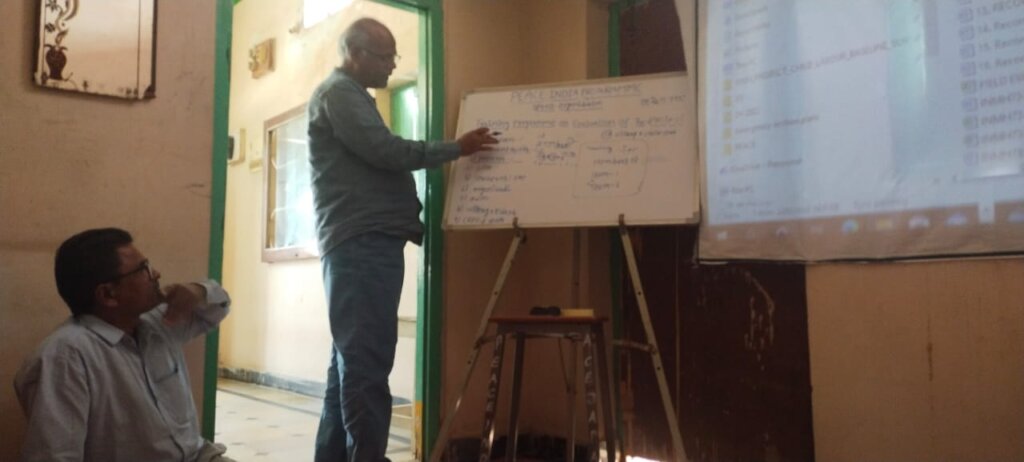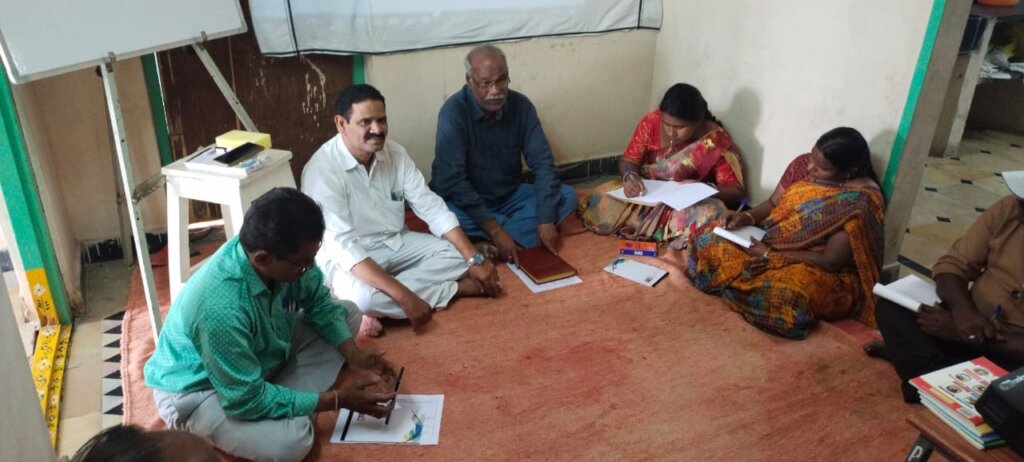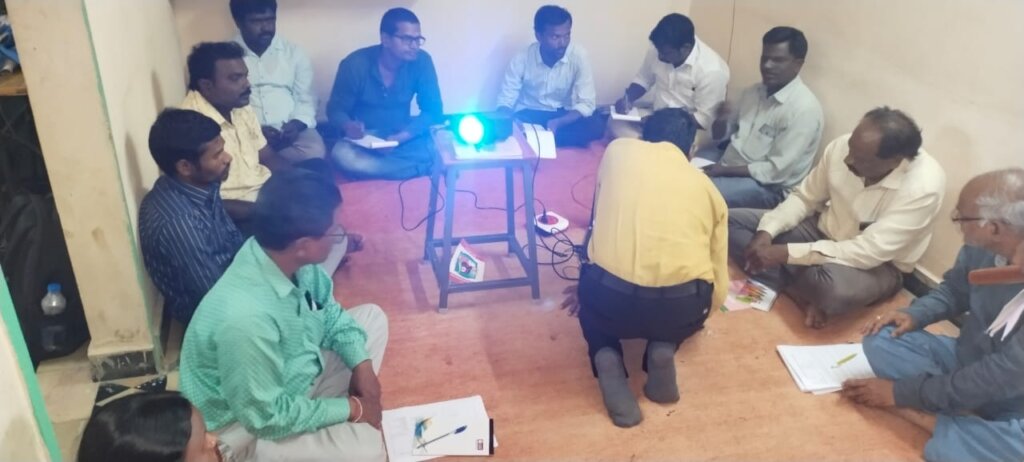By Mizuki Mori | India Project Manager
Hello everyone!
My name is Mori, India Project Manager. Thank you very much for your warm support for ACE's activities.
ACE, together with our local partner organization SPEED, is conducting the "Peace India Project" in a cotton-producing rural area in Telangana State, India, to protect children from child labor and support their education.
In this report, I would like to inform you of the extension of the project period for the project currently being implemented in three villages and report on our staff's efforts in the "project evaluation".
Project closing date extended
In the three villages where we are currently working, the project was scheduled to be completed and handed over to the local residents in March 2023. However, we have decided to extend the project until August 31, 2023, because the activities have been delayed compared to the original plan due to the impact of the new coronavirus infection and because, accordingly, the residents have not yet developed a system to maintain "villages without child labor" on their own.
Even with the extension, we're only about 10 months away from handing the project over to its residents!
The Peace India Project, which began in 2010, has implemented projects in six villages over the past 10 years and has enabled 1,245 children aged 6~17 to be freed from child labor and receive an education (as of the end of October 2022). In the remaining period of the project, we will continue to work with SPEED to strengthen the capacity of the residents and each stakeholder, and we are committed to empowering the residents in the three villages where we are currently working to help them become self-reliant.
A Village Without Child Labor --Thoughts on Project Evaluation--
One of the project's indicators for the completion of the project in a village is that at least 95% of children are free from child labor. Fulfillment of this indicator = achievement of a village without child labor.
What is needed to maintain that village as a child labor-free village?
When we have conducted interviews in villages where we have completed projects in the past, we have sometimes brought to light the reality of children who are not attending school, partly due to the Corona disaster. Therefore, we would like to investigate the effectiveness and sustainability of our project through "evaluation" of the actual situation in the villages where we have conducted our projects.
This evaluation is very important now that we are looking at handing over the management of the project to the residents. By reviewing and developing a system that enables the residents themselves to maintain the village without child labor after the project is completed, we will establish a model case for sustaining a village without child labor.
At the same time, the project aims to strengthen the capacity of stakeholders including SPEED and the volunteer organization "Children's Rights Protection Forum (CRPF)" through the project evaluation.
We believe that it is a very important initiative for SPEED and residents to think together in order to independently sustain a state free of child labor, to be in touch with the voices of children and residents through evaluation, and to experience for themselves the elements necessary for the establishment of a village free of child labor system.
Project evaluation training, how to overcome challenges?
As the first step of project evaluation, SPEED and ACE held seven internal training sessions and workshops.
First, while reflecting on the project's objectives, process, indicators, and contents, we set evaluation questions by clarifying "what are the objectives and what is being evaluated now?" We then considered what criteria and methods to value the evaluation questions, and clarified the steps for collecting the necessary data. Then, for each of the 16 groups of beneficiaries and stakeholders, we considered the form of data collection to appropriately reflect their voices, and created questionnaires for interviews and workshops.
As the steps of the project evaluation proceed, challenges with the SPEED staff become apparent.
While staff have begun to share a common understanding of the project's objectives, the aspirations of each staff member for achieving a village free of child labor are not always the same. In addition, not all of the staff working in the field can understand English, and some of them also serve as interpreters during the training, but due to the language barrier, it takes time for them to understand each other's opinions, which makes it difficult to move forward.... After each 3-hour workshop, the participants seemed to be exhausted.
Therefore, we decided to bring in an external organization that is an expert in child labor issues in India to conduct intensive training for SPEED and CRPF members in collaboration with ACE. In addition to training on project evaluation, we are also providing technical training on how to collect data, scrutinize questionnaires (question content, modification of methodology, focus on children's issues), etc.
By working with organizations familiar with child labor issues and exchanging opinions in a workshop format, this is a time for each staff member to discuss their thoughts, issues, and feelings of indigestion, reconfirm and re-share the objectives of the project evaluation, and modify the direction of the project.
There have been active discussions among SPEED and CRPF members, and a positive exchange of ideas has begun to take place. A good synergy between and within the respective organizations has been created.
It was a good opportunity to see the staff's confidence and sense of ownership increase and for each of them to consider implementation measures to build a mechanism for a village without child labor.
We are currently in the midst of a test interview with one village after completing these trainings. Through this test, we plan to find issues and lessons learned, revisit the survey content, and begin a full-scale field survey.
We will continue to seek to establish a village without child labor system in the area, and will continue to study the best ways to work with the residents and encourage their self-reliance.
Thank you for your continued support!
By Mizuki Mori | India Project Manager
By Mizuki Mori | India Project Manager
Project reports on GlobalGiving are posted directly to globalgiving.org by Project Leaders as they are completed, generally every 3-4 months. To protect the integrity of these documents, GlobalGiving does not alter them; therefore you may find some language or formatting issues.
If you donate to this project or have donated to this project, you can recieve an email when this project posts a report. You can also subscribe for reports without donating.


